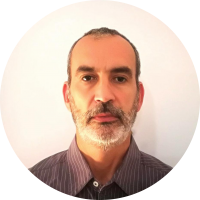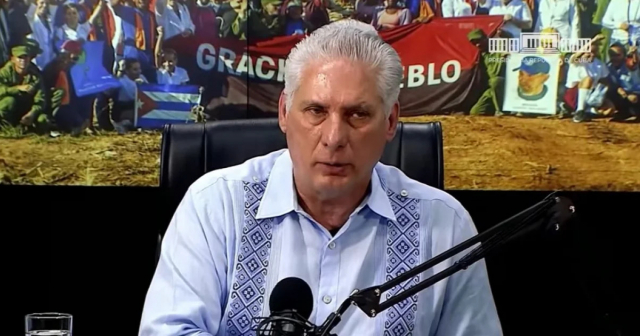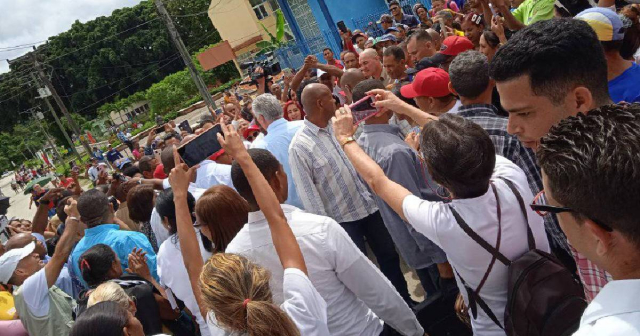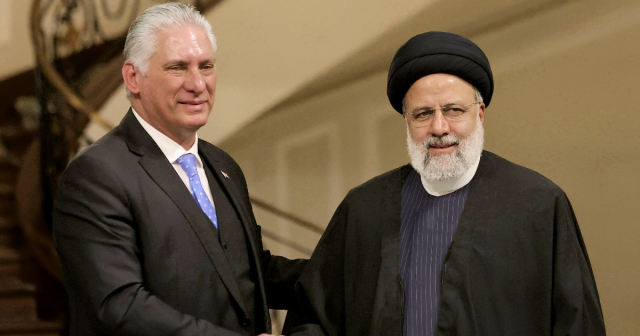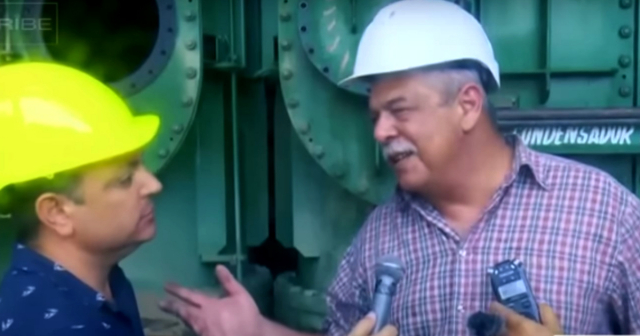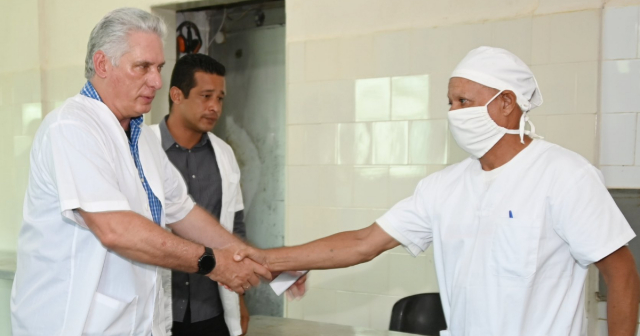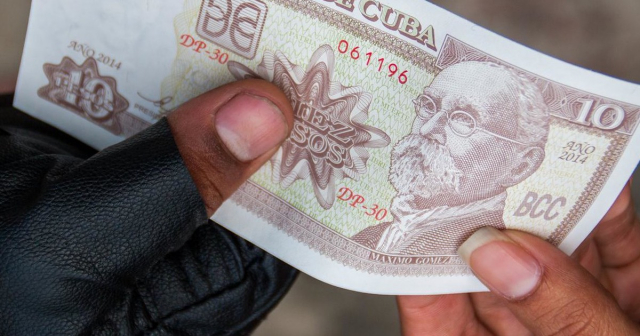The Cuban ruler Miguel Díaz-Canel visited the municipality of San Luis, in Santiago de Cuba, and shared one of his strategic reflections with the residents of the area about the importance of "planting more" to overcome the food shortages they are currently facing.
Another displacement of the "continuity" leader and his extensive entourage to a municipality in the country to release clever remarks, another "mass bath" organized by the propaganda machinery of the Communist Party of Cuba to its first secretary, another string of empty slogans to feed the annihilated hopes of a people dominated by the same totalitarian power for over 60 years.
"We are convinced that there is land here to produce the food we need here, in the municipality. And the hands are there, the strength is there. And the courage," Díaz-Canel said to a group of neighbors from San Luis who applauded the leader's belief that Cubans will know how to survive the crisis and food shortages caused by their policies."
Once again, the Palace of the so-called "revolution" reiterates its favorite argument in these times: the responsibility for ensuring that Cubans have their basic needs met lies with local governments, not with leaders who control the centralized and planned communist economy from their offices and air-conditioned lounges in the capital. They call this "correcting distortions and re-boosting the economy."
For this purpose, the leadership of the Cuban regime calls for "planting more", because there is plenty of land and what is lacking is people willing to work it to survive. Whose land is it that Díaz-Canel proposes Cubans sow and cultivate? How should Cubans work it: as employees or through voluntary work?
Should Cubans buy the necessary machinery themselves, along with the fuel, or are they asked to do it with their hands, bent over in the furrow? And the seeds, fertilizers, and pesticides, will the neighbors pay for them? Who will supervise the harvests, where will they be stored, and how will they be distributed? The most basic questions remain unanswered by Díaz-Canel.
Their mission, entrusted by the leadership holding the real power of the totalitarian regime, is to go wherever they are sent and say what they are told, even if it is to pretend that the government is aware of the problems of the Cubans, offering solutions and faithful to the “ideology of the revolution,” while the new Cuban oligarchy gains time to move forward with its plans to sell national wealth and further consolidate itself as the dominant group.
"Another thing we have to control is that those who sell food do not raise prices indiscriminately. As we have more food available, prices must decrease. However, in the midst of this situation, there are also people who set much higher prices than they should. Yes, and that abuses the people. But we have to confront that together in order to move forward," added the ruler.
Not only do Cubans have to go to the countryside to work in order to eat, whether they have the will, experience, and resources to dedicate themselves to agriculture or not, but they also have to keep an eye on those who do work in the fields and in the farmers' markets, so that their prices are not "abusive."
A kilo of imported powdered milk from a Micro, Small, and Medium-sized Enterprise (MSME) can indeed cost more than 2,000 pesos, but the food or vegetables that result from the work and sweat of those who produce them cannot have "abusive prices."
The data shows the reality: Food production in Cuba is sinking more and more.
Despite 60 years of failed experiment with socialist economy, the ruler designated by General Raúl Castro keeps communism as the cornerstone of a regime that has destroyed the country, caused the greatest socio-economic, energy, and migratory crisis in its history, and dismantled Cuban civil society through imposition, repression, and violence.
The result of that state socialist economy today is that "three highly consumed foods processed by the national state industry -vegetable oils, processed and semi-processed rice, and pork meat- had in 2023 records lower than one-fifth of the levels reached in 2018," as stated on social media by the economist Pedro Monreal.
"The industrial volume of popular high-consumption foods such as domestically processed flour, bread, and salted crackers has plummeted since 2018 and there are no signs of imminent recovery," the expert stated.
In addition, "four major processed dairy products by the state industry did not exceed half of the production volume of 2018 in 2023, indicating a rapid collapse of the Cuban dairy industry in just five years."
However, the Constitution of the Cuban regime proclaims socialism as the guiding and only ideology that citizens can profess, taking this discriminatory principle to the extreme in all aspects: from state-controlled economy to the call to exert violence against those who oppose such dictates of a totalitarian and despotic power.
A power that has ruined the country and now wants to blame "local governments," making them responsible for "the solution." A power that parades Díaz-Canel through towns and municipalities, surrounded by a swarm of bodyguards and mobilized supporters who cheer him on while he orders them to "fight" and "sow" if they want to eat and live.
What do you think?
COMMENTFiled under:
